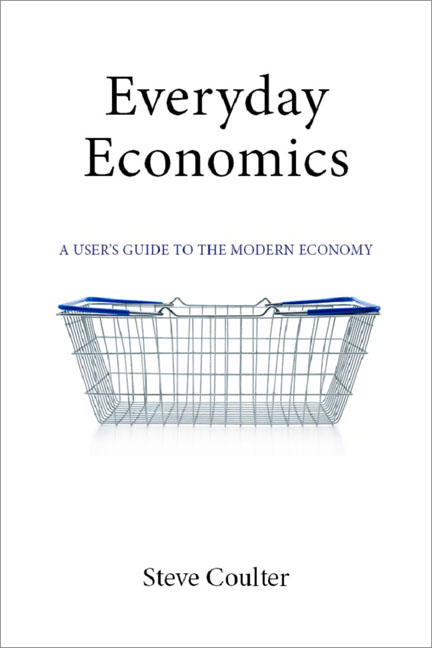Book contents
- Frontmatter
- Contents
- Preface and Acknowledgements
- 1 Economics: What is it Good For?
- 2 Knowledge is Power: Education and Training
- 3 Let’s Get Busy: Work and Occupations
- 4 Get Well Soon: Health and Healthcare
- 5 Making the World Go Around: Money, Banking and Personal Finance
- 6 Home Sweet Home: The Housing Market
- 7 Shop Till You Drop: Shopping and Consumption
- 8 From Cradle to Grave: Benefits and Welfare
- Index
4 - Get Well Soon: Health and Healthcare
Published online by Cambridge University Press: 09 August 2023
- Frontmatter
- Contents
- Preface and Acknowledgements
- 1 Economics: What is it Good For?
- 2 Knowledge is Power: Education and Training
- 3 Let’s Get Busy: Work and Occupations
- 4 Get Well Soon: Health and Healthcare
- 5 Making the World Go Around: Money, Banking and Personal Finance
- 6 Home Sweet Home: The Housing Market
- 7 Shop Till You Drop: Shopping and Consumption
- 8 From Cradle to Grave: Benefits and Welfare
- Index
Summary
He who has health has hope; and he who has hope has everything.
Thomas CarlyleKey questions
• Who should pay for and/or provide healthcare: the public or private sector?
• Why are healthcare costs rising, and are they containable?
• Is there one “best” way of organizing healthcare systems?
• How can we ensure that healthcare is equitable, affordable and effective?
Summary
Healthcare systems vary widely across countries, but individuals everywhere face versions of the same set of choices: whether to pay for, or get their employer to pay for, a good personal healthcare package, or to fall back on the state. People face dilemmas over how much to put aside for unknown future health risks, however, and how to offset the costs of doing this against more immediate demands on their time and money. Governments can always step in to provide collective, public solutions but given that health is a massive, global business with vast economies of scale should more of a role be handed to the private sector? And, if so, how should big pharmaceutical and medical companies that operate across borders be regulated? Ultimately, with ageing populations in advanced economies putting a massive strain on resources, individuals may need to take more responsibility if societies are to avoid having to ration ever more expensive healthcare.
Main topics and theories covered
Health economics and arguments for public intervention; why national healthcare systems differ; markets in healthcare; longevity and public health; the role of big drug companies and private medicine.
Healthcare and risk pooling
This chapter is about the role of healthcare systems in keeping us healthy and happy. The contribution of economics to this might not be immediately obvious. Surely, meeting our healthcare needs is a simple matter of building enough hospitals, stocking them with enough equipment and drugs and letting the medical professionals get on with the job?
As can be imagined, though, the reality is a lot more complicated than that. For a start, it is quite hard even to define “health” in terms useful to an economist or policy-maker.
- Type
- Chapter
- Information
- Everyday EconomicsA User's Guide to the Modern Economy, pp. 77 - 98Publisher: Agenda PublishingPrint publication year: 2017



